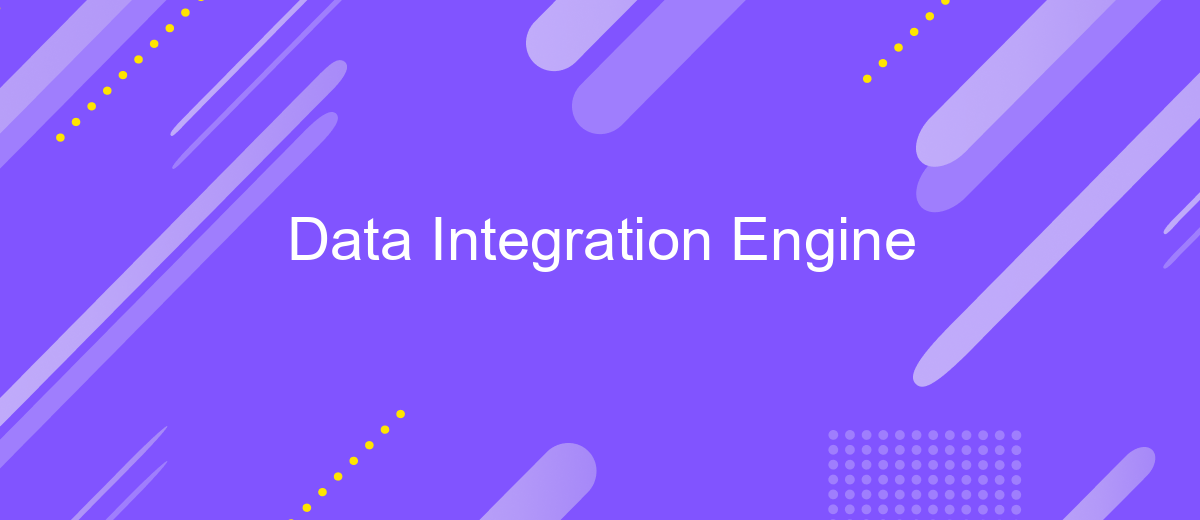Data Integration Engine
In today's data-driven world, efficient data integration is crucial for businesses to harness the full potential of their information assets. A Data Integration Engine serves as the backbone for seamlessly combining data from disparate sources, ensuring consistency, accuracy, and accessibility. This article explores the key features, benefits, and implementation strategies of a robust Data Integration Engine to optimize your data management processes.
Introduction
Data integration is a critical aspect of modern business operations, enabling organizations to consolidate information from various sources into a unified view. This process not only enhances data accessibility but also ensures that decision-makers have accurate and up-to-date information. A robust data integration engine is essential for achieving seamless data flow and operational efficiency.
- Centralized data management
- Improved data quality and consistency
- Enhanced decision-making capabilities
- Streamlined business processes
One of the leading solutions in this domain is ApiX-Drive, a service designed to simplify the integration process. ApiX-Drive offers a user-friendly interface and supports a wide range of applications, making it easy to connect various systems without extensive technical knowledge. By leveraging such tools, businesses can automate data workflows, reduce manual errors, and ultimately drive better business outcomes.
Architecture

The architecture of a Data Integration Engine is designed to seamlessly connect disparate data sources, ensuring efficient data flow and transformation. Central to this architecture is a robust ETL (Extract, Transform, Load) process, which extracts data from various sources, transforms it into a consistent format, and loads it into a target system. The engine employs a modular design, allowing for scalability and flexibility. Each module is responsible for specific tasks, such as data extraction, transformation, and loading, enabling the system to handle large volumes of data with minimal latency.
To streamline the integration process, services like ApiX-Drive play a crucial role. ApiX-Drive offers a user-friendly interface to configure integrations without the need for extensive coding. It supports a wide range of applications and data sources, providing pre-built connectors that simplify the setup process. By leveraging ApiX-Drive, the Data Integration Engine can quickly adapt to new data sources and integration requirements, enhancing overall efficiency and reducing the time required for deployment. This modular and service-oriented approach ensures that the Data Integration Engine remains agile and responsive to evolving business needs.
Features

Our Data Integration Engine is designed to streamline the process of combining data from multiple sources, ensuring seamless and efficient data flow across your organization. It offers a robust set of features that cater to various data integration needs, making it an essential tool for businesses looking to optimize their data management strategies.
- Automated Data Sync: Schedule and automate data synchronization to ensure real-time data updates across all integrated systems.
- Customizable Workflows: Create and manage custom workflows to handle specific data integration requirements with ease.
- API Integration: Leverage the power of APIs to connect with a wide range of applications and services, including popular platforms like ApiX-Drive.
- Data Transformation: Transform and normalize data from various sources to maintain consistency and accuracy.
- Error Handling: Robust error handling mechanisms to identify and resolve data integration issues promptly.
- Scalability: Easily scale your data integration processes to accommodate growing data volumes and complex integration scenarios.
With these features, our Data Integration Engine empowers businesses to achieve seamless data connectivity and integration. Whether you are dealing with on-premises systems or cloud-based applications, our engine ensures that your data is always synchronized, accurate, and ready for analysis.
Benefits

Implementing a Data Integration Engine can significantly streamline your business processes, ensuring that your data is consistent and up-to-date across all platforms. This not only enhances operational efficiency but also enables better decision-making by providing a unified view of your data.
One of the standout benefits of using a Data Integration Engine is its ability to automate data workflows. By eliminating manual data entry and reducing the risk of errors, businesses can save time and resources. Moreover, the integration engine can handle complex data transformations, making it easier to derive meaningful insights from disparate data sources.
- Improved data accuracy and consistency
- Enhanced operational efficiency
- Automated data workflows
- Scalability to handle large volumes of data
- Seamless integration with various data sources
Services like ApiX-Drive offer an excellent solution for setting up and managing these integrations. With its user-friendly interface and robust features, ApiX-Drive allows businesses to connect multiple applications without the need for extensive coding knowledge. This ensures that even small to medium-sized enterprises can leverage the full potential of data integration.
Conclusion
In conclusion, the Data Integration Engine plays a pivotal role in modern data management, enabling seamless connectivity between disparate data sources. By automating data workflows and ensuring real-time data synchronization, organizations can achieve greater efficiency and accuracy in their operations. This not only reduces the risk of data silos but also enhances decision-making processes by providing a unified view of critical information.
Services like ApiX-Drive further streamline the integration process by offering user-friendly tools to configure and manage data connections without extensive coding knowledge. With its intuitive interface and robust capabilities, ApiX-Drive empowers businesses to effortlessly integrate various applications and systems, thereby optimizing their data integration efforts. As the demand for efficient data handling continues to grow, leveraging such advanced solutions will be crucial for maintaining a competitive edge in the data-driven landscape.
FAQ
What is a Data Integration Engine?
Why is data integration important for businesses?
How does a Data Integration Engine work?
What are the common challenges in data integration?
Can I automate data integration processes?
Time is the most valuable resource for business today. Almost half of it is wasted on routine tasks. Your employees are constantly forced to perform monotonous tasks that are difficult to classify as important and specialized. You can leave everything as it is by hiring additional employees, or you can automate most of the business processes using the ApiX-Drive online connector to get rid of unnecessary time and money expenses once and for all. The choice is yours!

